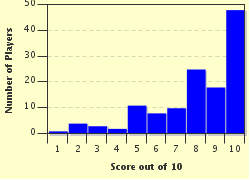Quiz Answer Key and Fun Facts
1. Which of these men is often given given credit for founding the Academy of Athens, one of the first institutions of higher learning in the western world?
2. Which of these famous Scotsman wrote "A Treatise of Human Nature" (1739) and was known for advocating that desire rather than reason governed human behavior?
3. Which Russian-born writer is credited with being the founder of the philosophical system known as Objectivism as well as the author of the novel "Atlas Shrugged" (1957)?
4. Which of these Nobel Prize winning authors was known for his tenet known as "absurdism"?
5. Which of these men is often described as the "Father of Classical Liberalism"?
6. Philosopher and psychologist John Dewey was an educational reformer often associated with the philosophy of pragmatism.
7. Which author and philosopher is known for his novel "Thus Spoke Zarathustra"?
8. German philosopher Arthur Schopenhauer believed in the innate goodness of mankind and held the optimistic view that all human misdeeds and suffering are caused by simple misinterpretation.
9. Which of these men is associated with the saying "Cogito ergo sum"?
10. Which of the following Dutchman wrote his philosophical masterpiece "The Ethics" in 1676?
Source: Author
dcpddc478
This quiz was reviewed by FunTrivia editor
bloomsby before going online.
Any errors found in FunTrivia content are routinely corrected through our feedback system.

